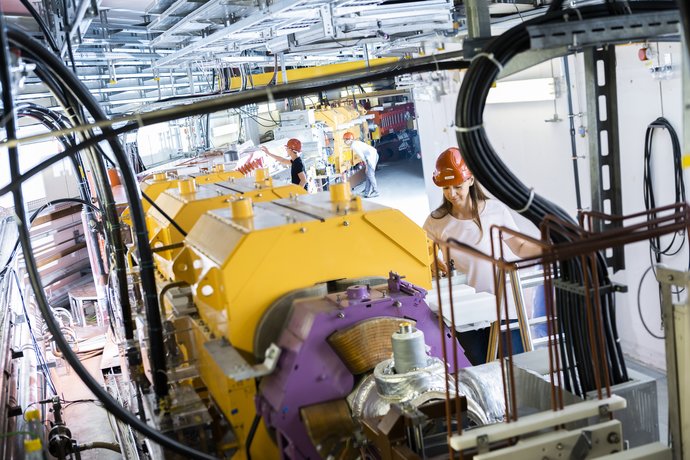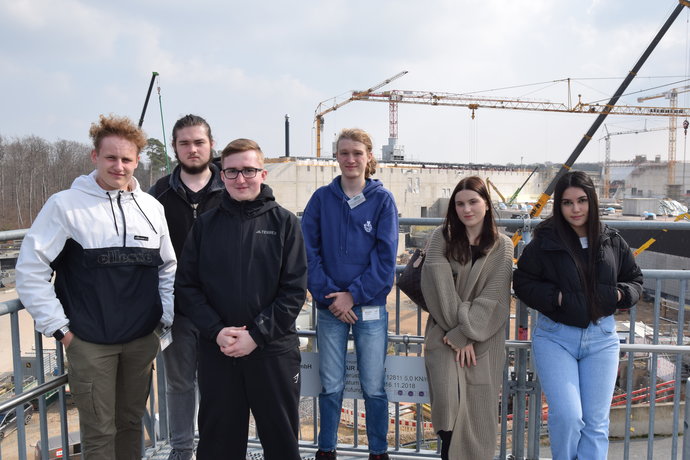
It could be a new, promising combination of two therapeutic approaches and a key to better combating advanced-stage cancer. Two strong partners have joined forces to explore this possibility: The biopharmaceutical and translational research institute TRON in Mainz with its highly specialized oncology research and the GSI Helmholtzzentrum für Schwerionenforschung in Darmstadt with its worldwide unique accelerator facilities and the cancer therapy with ion beams developed here. Researchers from…

What will the physics of the future look like? What are the phenomena that need to be explored? How can this research succeed? In the scientific publication “The sounds of science – a symphony for many instruments and voices – Part II”, the journal Physica Scripta gets to the bottom of these questions. Dr. Suzy Lidström, former editor of the Royal Swedish Academy’s physics journal, asked a total of 24 experts to share their vision of the future. In addition to three Nobel Prize winners – Gerard…

Thomas Stöhlker, head of the research division for Atomic, Quantum and Fundamental Physics at GSI/FAIR, Director of the Helmholtz Institute Jena and Professor at the Friedrich Schiller University Jena, receives an ERC Advanced Grant from the European Research Council (ERC). His project HITHOR has been awarded the European Union's research funding prize for established scientists. The prestigious award enables intensive research with highly-charged 229-thorium ions to pave the way for the…

The consortium of Dr. Maarten Boonekamp (spokesperson, Institute of Research into the Fundamental Laws of the Universe, CEA, Paris-Saclay), Prof. Dr. Jens Erler (Institute for Nuclear Physics, JGU Mainz), and Prof. Dr. Frank Maas (Institute for Nuclear Physics, JGU Mainz, GSI/FAIR and Helmholtz Institute Mainz) has been awarded in April 2024 an ERC Advanced Grant for the project “Zeptometry”. This project aims to combine new precision measurements at the highest LHC-energies at the European…

The CBM Collaboration awarded two young researchers with the "CBM Best Thesis Award" for outstanding PhD theses. The awards were presented during the CBM Collaboration Meeting and honored Dr Vikas Singhal and Dr Marcel Bajdel. The Compressed Baryonic Matter (CBM) experiment is one of the central research pillars of the international accelerator center FAIR, which is currently being built at GSI.

Mit dem Tod von Professor Dr. Eckart Grosse verliert die Wissenschafts- und Forschungsgemeinschaft einen herausragenden Kernphysiker und engagierten Wissenschaftler. Eckart Grosse wurde am 1. März 1942 in Berlin geboren und ist am 9. Februar 2024 nach langer Krankheit in Paderborn verstorben.

The ALICE Masterclass took place again this year on the GSI/FAIR campus. In the program addressing high-school students, the interested participants had the opportunity to analyze data from the ALICE experiment at the CERN research center, an experiment to which GSI significantly contributes to the construction, operation and data analysis. The event was organized by scientists of GSI’s ALICE research department.

Whether in listening to music or pushing a swing in the playground, we are all familiar with resonances and how they amplify an effect – a sound or a movement, for example. However, in high-intensity circular particle accelerators, resonances can be an inconvenience, causing particles to fly off their course and resulting in beam loss. Predicting how resonances and non-linear phenomena affect particle beams requires some very complex dynamics to be disentangled.

The broad expertise of the scientists at the GSI Helmholtzzentrum für Schwerionenforschung and at the accelerator center FAIR, currently under construction, is in demand. Professor Claudia Fournier from the GSI Biophysics Department has recently been appointed Deputy Chair of the Commission for Radiation Protection by Federal Environment Minister Steffi Lemke. The committee advises the Federal Ministry for the Environment, Nature Protection, Nuclear Safety and Consumer Protection (BMUV) on all…














